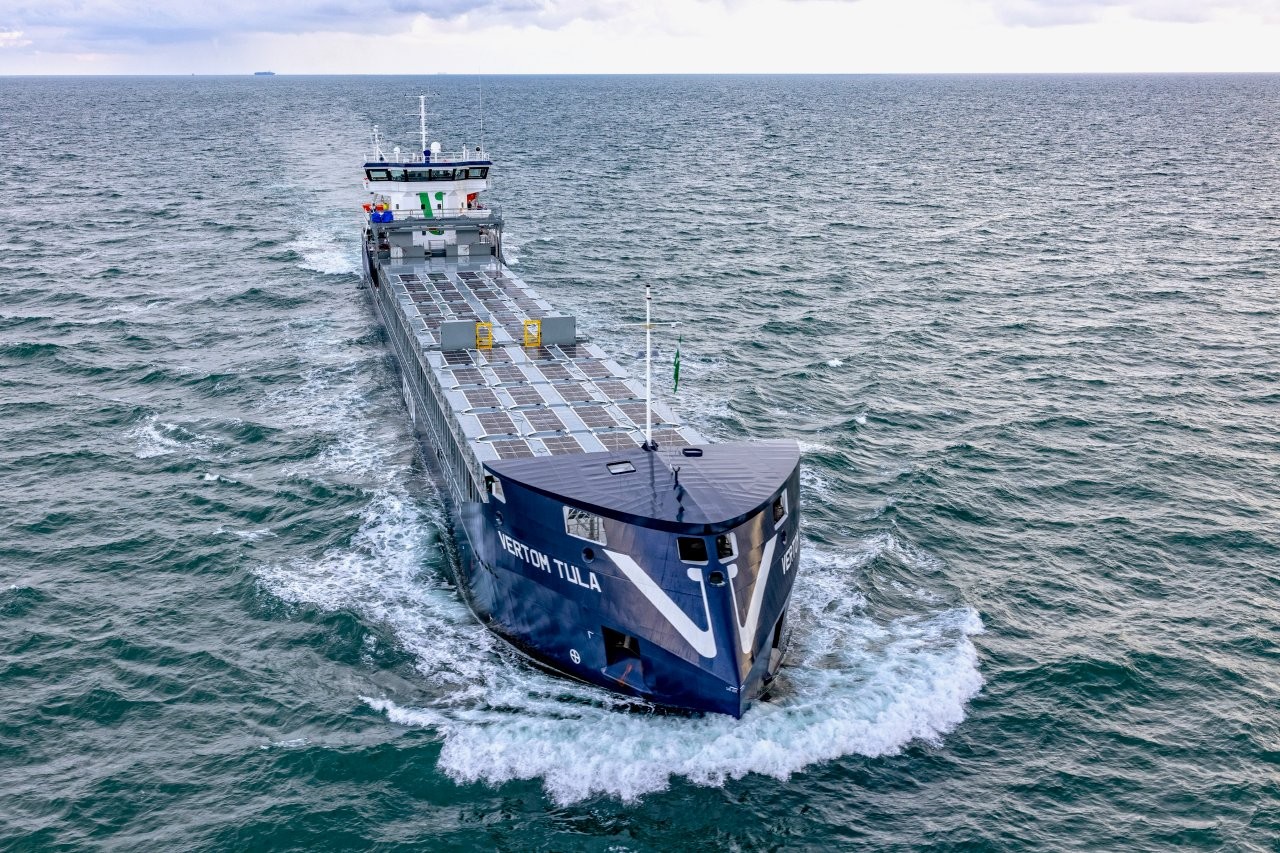Copyright offshore-energy

Dutch maritime solar innovator Wattlab has delivered a seaworthy solar energy system for a diesel-electric vessel owned by compatriot shortsea shipping company Vertom. After two successful pilots with Wattlab in three years, Vertom chose to outfit its latest coaster with 79 kWp of installed solar power – the first seagoing vessel to do so. The 7,280 dwt diesel-electric multipurpose cargo vessel MV Vertom Tula was delivered earlier this year. As explained, the solar system represents “a major technical milestone and a step forward for sustainable shipping”. Wattlab has delivered and installed 44 Solar Flatracks that will provide power to onboard systems, reducing 20% of the hotel load. To understand and test Wattlab’s new technology and benefits, Vertom executed two pilot projects with Wattlab before deciding to fully outfit this newbuild. After production and assembly in September in Wattlab’s new production facilities in Rotterdam, the 44 Solar Flatracks were installed onboard within a day in the Port of Harlingen. The SolarDeck pilot project has been co-financed by the European Union’s Just Transition Fund (JTF). The JTF is a new instrument of the Cohesion Policy 2021-2027, as the first pillar of the Just Transition Mechanism in the context of the European Green Deal, aiming at achieving EU climate-neutrality by 2050. “We thank Vertom for their trust and the smooth collaboration in the past three years. Without them we could not have achieved this milestone; that goes both for the vessel itself as for the technology. We wish the Vertom Tula and its crew fair winds and following seas! In addition, we thank the EU’s Just Transition Fund (JTF), which co-financed this project,” Bo Salet, Co-founder and CEO of Wattlab, commented. “During the pilots, the test results showed that the Solar Flatrack system performs well in the tough coastal shipping environment. Based on the results of our own and TNO’s research in the past months, we consider Wattlab’s Solar Flatrack an effective option for reducing GHG and pollutant emissions. Of course, these things also depend on the conditions our vessels operate in, but it’s clear that the system can provide both a positive ROI and contribute to CO₂ reduction in shipping,” Thomas van Meerkerk, Business Development Manager at Vertom, said. Dutch independent research organization TNO has validated the CO2 emission reduction and ROI time of the system. Their report will be published shortly. Having a first full-scale system operational on a coaster is said to mark an important step in the evolution of maritime decarbonization strategies. With rising regulatory pressure (e.g. FuelEU Maritime, EU ETS) and volatile fuel prices, shipowners and operators are seeking ways to diversify their onboard energy mix. This project sets the stage for wider adoption across the sector, delivering emission reductions, fuel savings, and energy resilience, according to the two companies. Dutch firm launches solar power solution for oceangoing vessels HGK Shipping and Wattlab pioneer hybrid solar-powered inland shipping vessel



